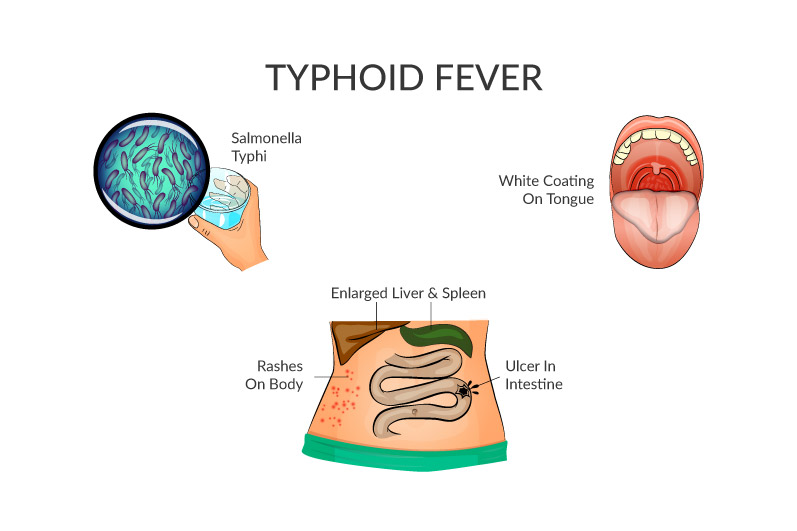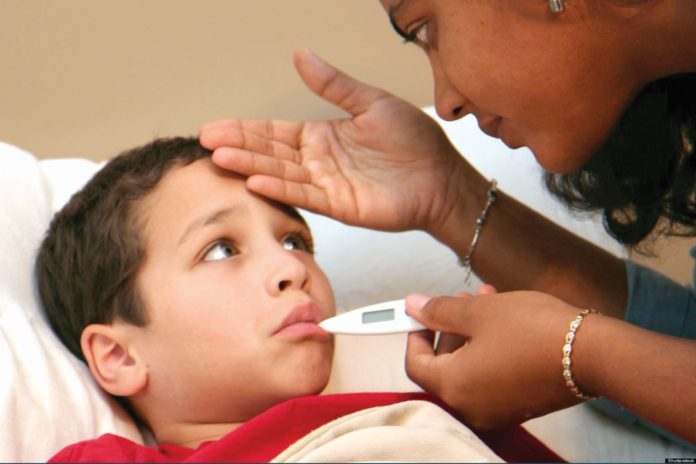With the recent news of the huge XDR (extreme drug resistant) typhoid fever outbreak, it is pertinent to know about this disease.
History: Typhoid or Enteric fever is a bacterial disease caused by the bacteria Salmonella typhi. The earliest account of this disease goes back to ancient Greece where it wiped out one-third of the population of Athens in 430 B.C. There have been numerous outbreaks over history of this fever, some even claiming the death of the12th president of united states Zachary Taylor due to typhoid. Non-washing of hands led to the spread from one carrier to 56 other people, as documented by the famous case of Typhoid Mary in USA.
Epidemiology: This is a third world epidemic disease, more common in Asia-Pacific, South America and Africa. It is caused by the poor sanitary conditions, lack of hand-washing and poor drainage system. The mixing of the sanitation with the drinking water and the lack of clean water is a major cause. The spread is also by the lack of proper hand-washing, which transfers the bacteria from the silent carrier (person who carries the bacteria but does not show symptoms) to the exposed public). The disease is epidemic in children with a high mortality.
Signs and Symptoms: The signs and symptoms start to appear around 6-20 days after exposure which makes it difficult to identify the source. Common early symptoms are: 1) Fever that starts low and increases daily, possibly reaching as high as 104.9 F (40.5 C), 2) Headache, 3) Weakness and fatigue, 4) Muscle aches, 5) Sweating, 6) Dry cough, 7) Loss of appetite and weight loss, 8) Abdominal pain, 9) Diarrhea or constipation, 10) Rash and 11) Extremely swollen abdomen.
Late symptoms include:1) deliriousness 2) Lie motionless and exhausted with eyes half-closed in what’s known as the typhoid state
It is of real importance that high grade fever with diarrhea in children should seek urgent medical help and consultation
Diagnosis: The medical specialist will do a general physical exam supplemented with the following lab tests: 1) blood CP 2) stool RE 3) cultures of blood, stool and urine. The gold standard of diagnosing typhoid is blood cultures. Widal test was also used over the last couple of decades to see the agglutinating antibodies in the blood but it did not show recurrent infections. Other tests done are1) ESR 2) PCR 3)ELISA.
Treatment: Oral rehydration with clean drinking water is a must. The antibiotics used over the years have changed due to the rise of resistance to antibiotics in S. typhi. Initial antibiotics used belong to the class of Fluoroquinolones. Later the treatment shifted to Cephalosporin. Now treatment is initially started with intravenous cephalosporin and later changed as per the reports of the cultures. In Pakistan XDR strain is prevalent so Carbapenem class of antibiotics are also used.
Complications: Intestinal bleeding or holes (perforations) in the intestine is the most serious complication of typhoid fever. It may develop in the third week of illness. A perforated intestine occurs when your small intestine or large bowel develops a hole, causing intestinal contents to leak into your abdominal cavity and triggering signs and symptoms such as severe abdominal pain, nausea, vomiting and bloodstream infection (sepsis). This life-threatening complication requires immediate medical care.
Other, less common complications: 1) Inflammation of the heart muscle (myocarditis), 2) Inflammation of the lining of the heart and valves (endocarditis), 3) Pneumonia, 4) Inflammation of the pancreas (pancreatitis), 5) Kidney or bladder infections, 6) Infection and inflammation of the membranes and fluid surrounding the brain and spinal cord (meningitis), 7) Psychiatric problems, such as delirium, hallucinations and paranoid psychosis.

Prevention: The public health goals that can help prevent and control typhoid fever safe drinking water, improved sanitation and adequate medical care may be difficult to achieve. For that reason, some experts believe that vaccinating high-risk populations is the best way to control typhoid fever. Vaccines available: 1) is injected in a single dose. 2) is given orally in four capsules, with one capsule to be taken every other day. The injectable has been included in the EPI schedule of Pakistan.
Take home message:
- Ensure food is properly cooked and still hot when served.
- Avoid raw milk and products made from raw milk. Drink only pasteurized or boiled milk.
- Avoid ice unless it is made from safe water.
- When the safety of drinking water is questionable, boil it or if this is not possible, disinfect it with a reliable, slow-release disinfectant agent (usually available at pharmacies).
- Wash hands thoroughly and frequently using soap, in particular after contact with pets or farm animals, or after having been to the toilet.
- Wash fruits and vegetables carefully, particularly if they are eaten raw. If possible, vegetables and fruits should be peeled.




